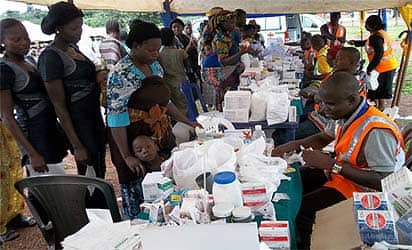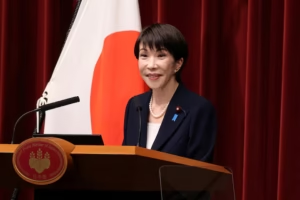
Primary Healthcare and the Community
By Rasheed Shuaib
Good Governance Team
Abuja
Primary health care is a whole of society approach to health and well being centered on the needs and preferences of individual, families and communities it addresses the broader determinants of health and focuses on the comprehensive and interrelated aspects of physical, mental and social health and well being.
Primary health care is rooted in a commitment to social justice and equality and in the recognition of the fundamental right to the highest attainable standard of health, as echoed in Article 25 of the Universal Declaration on Human Rights: “Everyone has the right to a standard of living adequate for the health and wellbeing of himself and of his family, including food, clothing, housing and medical care and necessary social services…”.
The concept of primary health care has been repeatedly reinterpreted and redefined. In some contexts, it has referred to the provision of ambulatory or first level of personal health care services. In other contexts, primary health care has been understood as a set of priority health care has been understood as a set of priority health interventions for low income populations (also called selective primary health care).Others have understood primary health care as an essential component of human development, focusing on the economics, social and political aspect. Strengthening system at the community and peripheral health facility level contributes to building resilience, which is critical for withstanding shocks to the health system. Stronger primary health care is an essential to achieving the health related sustainable Development Goals (SDGs) and universal health coverage. It will contribute to the attainment of other goals beyond the health goal (SDG3), including those on poverty, hunger, education, gender equality, clean water and sanitation, work and economic growth, reducing in equality and climate action.
In August 1987, the Federal Government launches its primary health care (PHC) plan, which President Ibrahim Babangida announces as the corner stone of health policy. Intended to affect the entire national population accelerated health care personal development improved collection and monitoring of health data. One of the objectives of primary health care is to provide open access primary health center (PHC) to all community and its environment to the best standard.
Effective delivery of healthcare services requires availability of adequate infrastructure; diagnostic medical equipment drugs and well trained medical personal.
In Nigeria poor funding and mismanagement amid of the Covid-19 pandemic often characterize healthcare service delivery thereby affecting coverage and quality of healthcare services. Therefore, the state of service delivery in Nigeria health sector has come under some persistent criticism.
In Nigeria human capital development through provision of sound and efficient health delivery system is convinced as the bedrocks for economic growth and development.
Beside the physical attractiveness of health infrastructure, their overall acceptability would be perceived from the nation of workability of the complementary technological and human resources, functionality of the road networks, water supply systems, 24/7 electricity supply to all the existing health centers, should be urgently addressed in achieving the universal health coverage (UHC).
However, such requirement are presently absent at many health care centers across the nation. In Nigeria, differences exist between qualities of healthcare services provided, while some regional differences also exist. Specifically, obi etal concluded that private owned health facilities have better service readiness than public facilities.
A community participation approach is a cost effective way to extend the health system to the geographical and social periphery of a country. Communities that begin to understand their health status objectively rather than fatalistically may be moved to take preventive measures. Communities that invest labour ,time ,money and materials in health promoting activities are more committed to the use and maintenance of the things they produce, such as water supplies, health education is most effective in the context of village activities and community health workers, if they were well chosen have the confidence of the people. Emphasis should be on community involvement in promoting primary health care if we must achieve the universal health coverage.








